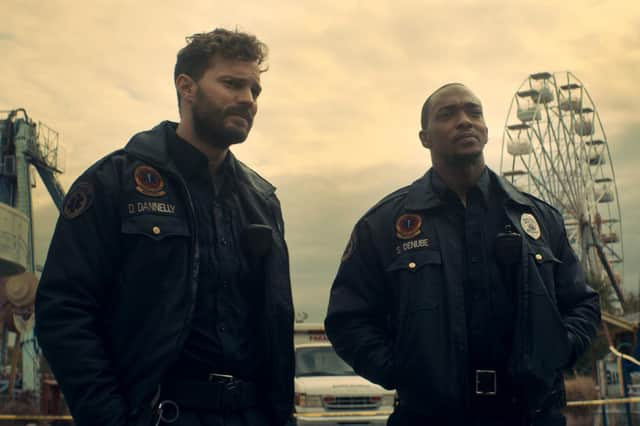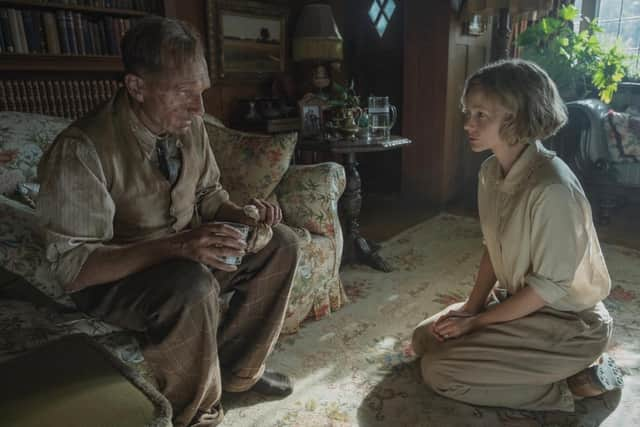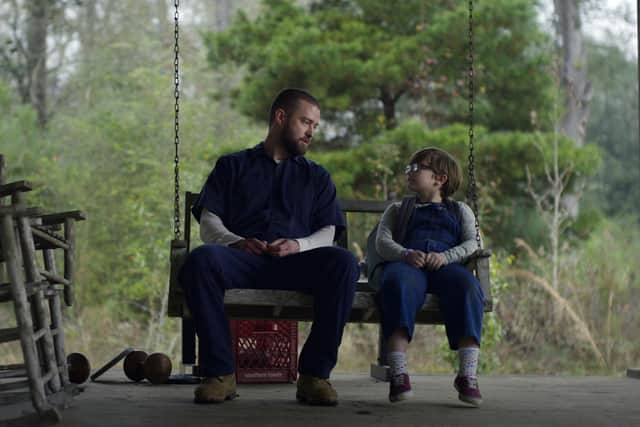Film reviews: Synchronic | The Capote Tapes | The Dig | Palmer


Synchronic (15) ****
The Capote Tapes (15) ***
The Dig (12A) **


Palmer (15) ***
Time travel gets an intriguing twist in Synchronic, the latest trippy head-scratcher from cult directors Justin Benson and Aaron Moorhead (The Endless). Starring Anthony Mackie and Jamie Dornan as a couple of over-worked New Orleans paramedics who find themselves dealing with the fall-out from a new designer drug that can time-warp people into the past, it’s a film that eschews the standard grandfather paradox beloved of Back to the Future, the Terminator films and, more recently, Tenet, in favour of a more philosophical exploration of the concept by presenting time as the villain.
Kicking off with a psychedelic cold-open that drops us into the hallucinatory madness of the eponymous narcotic, the film does a great job of setting us up for one type of movie, only to subtly alter proceedings as we follow Mackie’s hard-partying ladies’ man Steve and Dornan’s disgruntled family man Dennis. Friends since college, they're not-so-secretly envious of each others’ lives now that they’re edging into their forties, but their regrets are brought into sharp relief when Dennis’s teenage daughter (Ally Ioannides) disappears after taking the drug. Here, the film morphs into a kind of time travel detective movie, but what’s intriguing is the focus-shift to Mackie’s character.
Advertisement
Hide AdFor reasons that shouldn’t be spoiled here, it’s Steve who takes it upon himself to investigate the effects of Synchronic and his racial identity ups the stakes of a film intent on finding a literal way to highlight the hostility of the past. Though not working with huge resources, the filmmakers do a lot with what they have. Sparing use of atmospheric visuals helps capture the wooziness of their reality-bending premise, and there’s an admirable attempt to set out the rules of the world without resorting to reams of exposition. One character’s explanation for how time works uses a vinyl record as a prop and it’s a masterclass in economic storytelling. But it’s the way the filmmakers then integrate this idea into the structure of the film as a whole – gradually moving from a linear story to one with more scrambled chronology – that really kicks this up a gear. Like Brandon Cronenberg’s recent Possessor, this is bold, ideas-driven sci-fi horror told with real flair.


Truman Capote has already been the subject of two very good biopics (Capote from 2005 and Infamous from 2006), both of which made it clear that that crafting In Cold Blood all but destroyed his ability to write. But while it’s true Capote never completed another book, he did spend more than a decade working on a thinly veiled novelistic exposé of New York high society entitled Answered Prayers, only three chapters of which were ever published. Debut director Ebs Burnough’s new documentary The Capote Tapes teases us with the mystery of this manuscript’s non-appearance by hinting that Capote’s decision to write it as an act of revenge may be what finally destroyed him.
It’s an interesting theory, one fueled by Capote’s growing disdain for both his inner circle of socialites and his assigned role as their court jester, but also rooted in his complex feelings about his own social-climbing mother. It’s too bad then that this theory ultimately takes a backseat to the film’s other thesis: that Capote’s gossipy, back-stabbing final years laid the groundwork for reality television – a banal observation that smacks of trying to make him relevant for younger audiences.
The film is also rather slippery in its presentation of the titular tapes as a treasure-trove of never-before-heard interviews with friends and literary peers. Conducted by George Plimpton, these interviews formed the basis for Plimpton's bestselling 1998 oral biography of Capote, which in turn became the source material for the aforementioned Infamous – so it’s not as if the information has never been in the public domain before. Nevertheless, in spirit of Capote himself, it’s perhaps best not to let such details get in the way of a good story. For all its flaws, The Capote Tapes still serves up one of those.
Class division and heritage finery fuel The Dig, a tastefully tame bit of BAFTA bait built around the famous Sutton Hoo excavation of an Anglo-Saxon burial ship in Suffolk on the eve of the Second World War. Ralph Fiennes plays Basil Brown, the self-taught working-class archeologist hired by widowed landowner Edith Pretty (Carey Mulligan) to excavate some very large, very mysterious mounds of earth on her vast estate. When Basil uncovers a site of great historical importance, it’s not long before the London cognoscenti – led by an odious Ken Stott as the head of the British Museum – swoops in to take over. Despite the restrained tone, the film really is this schematic and it gets less and less interesting the more it uncovers. Lily James, Ben Chaplin and Johnny Flynn co-star.
As an ex-con forced to take on parenting duties for a gender non-conforming eight-year-old, Justin Timberlake is on good form in Palmer, a formulaic but well-made redemption melodrama that just about gets the tough/tender balance right. It helps that Timberlake’s young co-star, Ryder Allen, who plays the princess-loving Sam, is such a sweetheart – it’s hard not to root for the pair of them as their mutual outsider status underscores the film’s nicely handled message about the value of accepting people for who they are.
Advertisement
Hide AdSynchronic and The Capote Tapes are available on digital demand from 29 January; The Dig is streaming on Netflix from 29 January; Palmer is available on AppleTV+ from 29 January.
A message from the Editor
Thank you for reading this article. We're more reliant on your support than ever as the shift in consumer habits brought about by coronavirus impacts our advertisers.
If you haven't already, please consider supporting our trusted, fact-checked journalism by taking out a digital subscription at https://www.scotsman.com/subscriptions
Joy Yates, Editorial Director